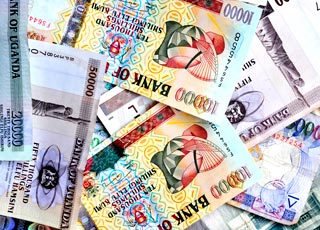
By Patrick Kagenda
But analysts warn strategy could backfire if inflation spirals
Did the Central Bank intervene late last month in the local foreign currency market?
According to media reports, unnamed Central Bank officials confirmed it had intervened on March 25 to prop up an already strong dollar against the shilling.
But on the same day, while presenting the February economic and financial indicators, Bank of Uganda Director for Research, Mary Katalikawe, said the Central Bank would not intervene “unless there is panic in the market”.
“The shilling will continue with the free fall until the market determines the rate [rather] than Bank of Uganda fixing it. We are only looking at the market stability,” she said.
So was there panic in the financial market in March? Possibly.For sometime now, the Central Bank has taken decisions that appear determined to grow liquidity in the economy and encourage banks to lend more aggressively.
In mid-February the BoU cancelled a scheduled treasury bill auction citing unfavorable liquidity conditions. At the time, it said after considering the liquidity conditions and to further consolidate the improved inter-bank rate developments it was also revising the policy margin to 3.4 % down from 6.7 % effective March 02, 2009.
In December 2008, it had cancelled a Shs 50 billion bond auction over similar concerns. In February BoU also revised its bank rate and rediscount rates downwards by an average of 3.39% to 15.88% and 14.88% respectively.
Both moves appeared designed to grow money supply in the commercial sector and encourage bank lending.
Instead, bank lending has remained low under the shadow of global financial uncertainty, and expected inflationary fall-out of the BoU activity has not been obvious this March.
Inflation indicators over the same period have consistently pointed south.
At the end of March, the Central Bank announced in a statement that annual headline inflation declined to 14.3% in February from 14.4% in January mainly on account of a slight reduction in food and fuel prices.
The February monthly headline inflation also eased to 0.7% compared to 1.1% in January. Annual core inflation followed with the downward trend to 12.6% compared to 13.4% in January. Month on month core inflation also eased to 0.3% from 1.7% in January.
The only result of BoU’s activity appears to be the drop in the value of the shilling by month’s end to Shs 2,150 to the dollar compared to Shs 1,950 at the beginning. It was Shs 1,680 to the dollar in October 2008 indicating a depreciation of about 30% over six months.
Although strong in the local forex market, however, the dollar has been weak on the international scene. This weakness could have led the Bank of Uganda projections off-mark and prompted its unusual intervention on the side of an already strong dollar.
Equity Stocks manager Edward Ruyonga said, however, that the falling shilling could be a sign that more money is exiting the economy than is coming in.
Bank of Uganda, which has for sometime been anxious to stem the effects of the exiting offshore traders from its treasury bills market and improve liquidity in the economy, appears willing to allow the shilling to depreciate further.
But MBE`A stock brokerage firm’s sales and trade analyst Musa Nsubuga told The Independent that the expected further fall of the shillings could result in inflation and a rising in the cost of living.
 The Independent Uganda: You get the Truth we Pay the Price
The Independent Uganda: You get the Truth we Pay the Price





